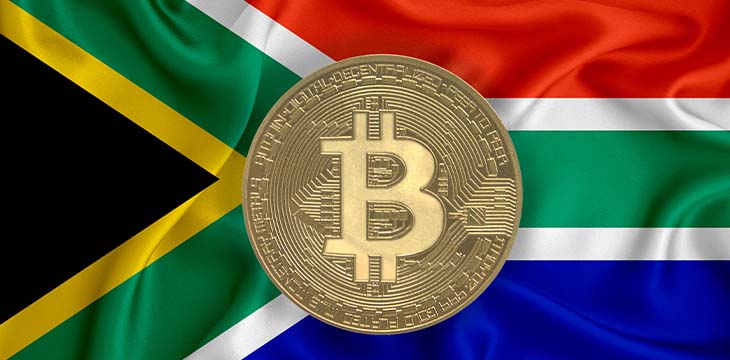|
Getting your Trinity Audio player ready...
|
South Africa has made a giant leap in Bitcoin regulations, with the country’s financial regulator declaring digital assets as financial products.
The Financial Sector Conduct Authority (FSCA) published a notice confirming that it had updated the country’s Financial Advisory and Intermediary Services Act to include digital assets.
FSCA defines a ‘crypto asset’ as a “digital representation of value” that applies cryptographic techniques and uses distributed ledger technology (DLT). The agency declared ‘crypto assets’ to be financial products.
The declaration is the first crucial step in digital asset regulation in the country. Regulators will now be able to formulate and implement laws to govern the sector, including enforcing anti-money laundering programs and issuing licenses to virtual asset service providers (VASPs).
“This was the first legal step that was required to bring the crypto asset industry within the South African legal framework,” commented Brent Petersen from the digital asset trading platform Easy Crypto.
Marius Reitz, the general manager for Africa at Luno exchange, concurs. He further pointed out that the new classification will make it easier for investors to select qualified investment advisors.
“The licensing requirements that will flow from this classification will drive high standards in the industry, particularly in relation to consumer protection, with potential investors easily able to identify those providers that satisfy regulatory requirements. Another key benefit is that it should allow financial advisers to formally advise their clients on crypto investments,” he told Bloomberg.
South African digital asset investors have been calling for regulations for years. The country’s appetite for digital assets has been growing steadily, with some reports estimating that about 15% of the 61 million South Africans have owned at least one digital asset.
The lax regulations in the country have seen scammers exploit this group of investors. Africrypt, a pyramid scheme devised by two brothers, made off with a reported $3.6 billion, making it the biggest scam in the country’s crypto industry. Other notable scams include Mirror Trading International, a Ponzi scheme that’s alleged to have defrauded $1.7 billion from investors in South Africa and beyond. In July, the CFTC filed fraud charges against the MTI operator in what was the biggest BTC-related case to date.
Watch: The BSV Global Blockchain Convention panel, Blockchain in Africa

 02-24-2026
02-24-2026 




